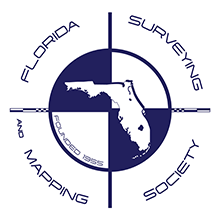CCNA Compliance
Consultant's Competitive Negotiations Act
What is CCNA?
Adopted by the Florida Legislature in 1973, Florida Statute 287.055 (CCNA) requires state government agencies, municipalities or political subdivisions, school boards and school districts, to select a consulting firm based on qualifications rather than on a “lowest bid” basis. It is modeled after a federal law commonly known as The Brooks Act—a qualifications based selection (QBS) process required by law, 40 USC 1101 and implemented in the FAR (48 C.F.R.36.6).
Why CCNA?
Qualifications-based selection (QBS) elevates this competitive process to its proper plane—qualifications, competence, track record and availability. Bidding professional consulting services causes disadvantages to the owner as the firm attempts to make a profit despite their “lowest bid” fee and may undermine the quality of the finished product or increase the total cost of the project. QBS is necessary for protection of the public for:
- Delivery of Emergency services such as fire and ambulance
- Accuracy in development of revenue/taxation base maps, and in appraisal and assessment functions
- Accuracy and legal enforcement of regulatory functions
- Integrity of the design/construction process for municipal infrastructure
What is regulated?
Surveying and Mapping is the measurement of land/air/sea which utilizes a constantly evolving array of tools and technologies, which includes:
- Orthophotography, both vertical and oblique
- Boundary, Topographic, Bathymetric/Hydrographic and Construction Surveys
- LIDAR, both aerial and terrestrial
- Utilities Iventory Mapping
- GIS Infrastructure Base Mapping
- Wetlands Mapping and other jurisdictional determinations
How do I comply?
The method of procuring professional services applies to a planning or study activity where compensation exceeds $35,000 and in projects where the basic cost of construction, as estimated by the agency, will exceed $325,000. See below for the simple and effective four step process for choosing a consultant.
Florida Statute 287.055 specifically states that nothing in the act shall be construed to prohibit a continuing contract. Equally important to note is that firms providing professional services under continuing contracts shall not be required to bid against one another.
A simple and effective four step process for choosing a consultant:
- Public announcement of the contact. A public notice of requirements for professional services is advertised, including a description of the project and application process information.
- Qualification and certification of firms. Consulting firms submit qualifications indicating their interest in the contract. The agency certifies qualified firms.
- Selection of certified qualified firms. The agency rates and compares the qualifications of the certified firms. The agency then selects and ranks no less than three firms in order of preference, based on those qualifications.
- Negotiation of professional service contacts. The agency negotiates a contract with the firm ranked as the most qualified, at a compensation which the agency deems fair, competitive, and reasonable. The firm and the agency hold detailed discussions to establish a clear project scope and the exact services the consultant will provide. Such negotiations usually succeed. Should the two parties fail to agree upon the level of compensation, however, the agency ends negotiations with the first firm and begins negotiations with the second-ranked firm. If again unsuccessful, the agency repeats the process with the next highest-ranked firm.
|

